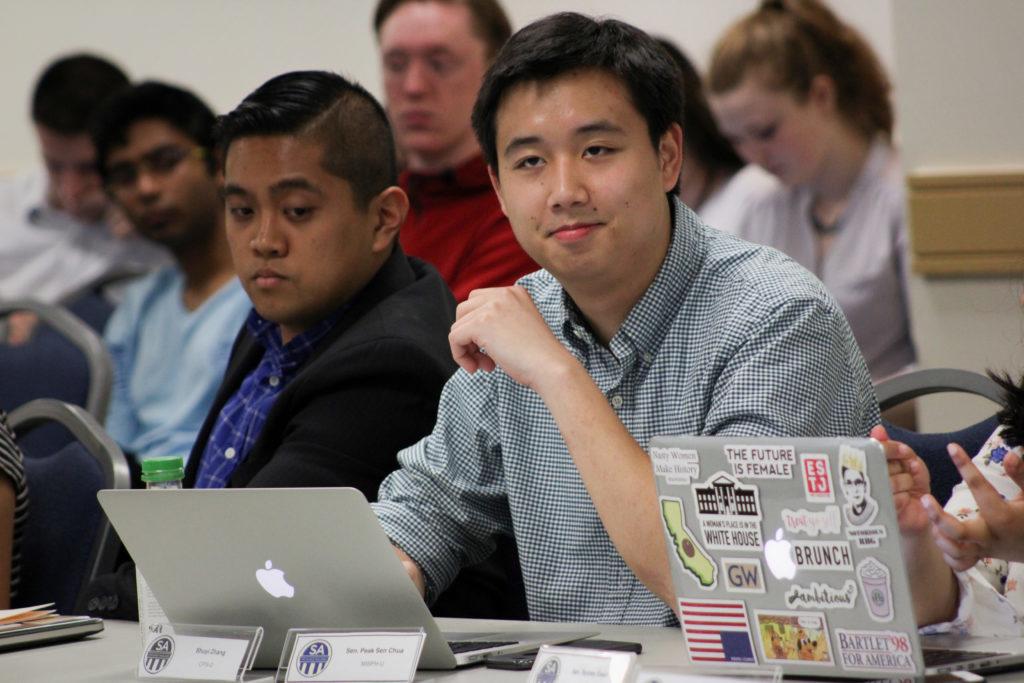Updated: April 18, 2017 at 12:49 a.m.
The Student Association Senate passed a bill nearly unanimously Monday night to clear the way for Executive Vice President-elect Peak Sen Chua to become the SA’s next president.
The bill will change the SA’s bylaws to state that if the president-elect position is vacant, the vice-president elect will fill that role. The SA’s presidential election was postponed earlier this month, meaning that under the proposal, Chua, who won the executive vice presidential contest on April 6, would become president-elect.
SA President Erika Feinman still has to sign the bill and it must be approved by the new senate, which meets for the first time Wednesday night.
SA Executive Vice President Thomas Falcigno said if Feinman and the senate-elect agree to the measure, Chua will be sworn in as SA president on May 2.
There would also not be an SA presidential election in the fall, which the Division of Student Affairs and the Joint Elections Committee – the student body that oversees the elections – previously announced when the contest was postponed on April 4.
Chua said he plans to nominate his former opponent Sydney Nelson as his executive vice president, which the new senate will also vote on Wednesday night. Chua defeated Nelson with 51.9 percent of the vote – a margin of 102 votes.
Chua said because he didn’t run as a presidential candidate, he and Nelson are working together to create a more ambitious agenda with proposals typical of a presidential platform.
“We have been scaling up our goals,” Chua said. “I’m excited and feeling prepared as usual.”
Falcigno said the bylaw change will allow Chua to select an executive cabinet that the senate-elect will nominate on April 26. The move will give future cabinet members enough time to transition into their roles and build relationships with administrators, he said.
“This would allow Peak and hopefully Sydney to take the time to really consider all nominees for their cabinet to form the best government that they can and really start off strong from the minute they take their respective oaths of office,” he said.
He said students who planned on running for president in the fall still have plenty of opportunities to be involved as members of the cabinet. Cabinet applications close on April 20.
This year’s SA presidential elections were initially postponed to the fall after presidential candidate Lande Watson was accused by an opponent of harassment and intimidation and ultimately disqualified from the race.
“Frankly it is a little unfair to candidates who felt either the conflict was unresolved or that they didn’t do anything wrong,” Falcigno said. “We have our governing documents we have to follow.”
But he said because students either voted for Chua or Nelson in this year’s executive vice presidential election, students would get what they voted for from SA leadership.
“I really just feel this is the right move for the Student Association,” he said. “I think both Peak and Sydney have been incredibly great advocates in the senate.”
Falcigno said he discussed with Associate Dean of Students Tim Miller how the SA could fill the presidential vacancy, but he said the SA decided on its own to implement this plan. He said having a president and EVP over the summer, prior to the fall, is essential to laying the groundwork for projects during the year and building relationships with administrators.





